|
Willing Workers on Organic
Farms
Imagine helping fellow
travellers, while they help you with their hands.
A fantastic world-wide
scheme known as 'Willing Workers on Organic Farms' or WWOOF,
puts
willing workers (mostly travellers) on organic farms where they work for
room and meals.
article
from wwoof.com.au
|
|
Working in exchange for
food and accommodation is the basis of all WWOOFing. Time spent working
varies according to the degree of self-sufficiency expected, how busy
the host is at the time of your visit and other factors - but it should
average out at about a half day's work for a full day's keep. We suggest
that 4 to 6 hours a day is fair exchange for a days full board and
accommodation.
Benefits
WWOOFing gives you:
first hand experience of organic growing methods by helping your hosts
a chance to meet, talk, learn and exchange views with others in the
organic movement
an opportunity to learn about life in the host country by living, and
working, as family.
Your Hosts
Within Australia, as in many parts of the world, our hosts are mainly
pursuing a simple, sustainable, lifestyle. Many are Permaculture
enthusiasts, and about 20% use Bio-dynamic growing methods.
About a quarter of the farms in the WWOOF Book are commercial producers,
whether full or part time. Some of our hosts are alternative,
co-operative communities, and a few are communal living groups (the list
of alternative communities includes entries which are not WWOOF hosts).
Length of Stay
The minimum stay on a WWOOF farm is two nights, the maximum stay is by
mutual agreement between you and your host. Most stays are for a few
days only, but there are a number of hosts who encourage longer term
stays up to as long as six months, usually after a trial period of four
or five days.
The Work
The work you will do for these hosts is likely to be wide and variable -
it could be anything the host needs done which you are capable of!
Since you work as family there are no set hours, but an average of four
to six hours daily would be a fair exchange.
This list gives you an indication of some of the more common tasks:
|
Work on
Farms |
Work on
Non-Farms |
|
Sowing |
Compost
making |
Gardening |
|
Planting |
Wood
cutting |
Child-minding |
|
Weeding |
Mud-brick
making |
Office
work |
|
Harvesting |
Fencing |
Typing |
|
Milking |
Feeding |
Computer
work |
|
Building |
Packing |
|
|
How to Book with a Host
Once you've found a suitable host in one of our lists, bookings can be
made by phone, mail or email, to the farm you choose.
From within Australia, phone bookings are common, but people overseas
who make bookings - or Australians intending to visit a host outside
Australia - can book their first host by phone, mail or email, enclosing
an International Reply Coupon to ensure an airmail reply, with a
follow-up phone call when you arrive in the country to confirm your
booking.
Some Hints on WWOOFing
Try to phone your prospective hosts between noon and 2pm, or between 6pm
and 8pm for the best chance of catching them. It often helps if you
sound enthusiastic and promote your skills. Have someone call for you if
your English is limited, but be aware hosts may wish to speak with you
personally.
Bring photographs, video, brochures and other mementos from your home
area to show your hosts.
Be prepared to get out and meet local people - and to spend a bit of
money locally as well.
Get the most from your visits. Stay a few weeks at one place, then try a
different style of host to broaden your experience.
If you or your partner are in need of medical or psychiatric treatment,
help or therapy, PLEASE do not use WWOOF. Our Hosts are busy people, not
trained therapists.
What to take with you
Sleeping Bags. Mostly accommodation is in a spare room within the family
home - but see the host's entry for variations. Usually bedding would be
supplied, but this is not certain. Check when booking, but it would make
sense to have a sleeping bag with you for emergency use. If travelling
for long periods, please wash and air your sleeping bag now and again!
Boots and Gloves. While work can be anywhere in a house, garden or farm
situation, always anticipate the worst weather and carry (and wear)
boots to protect your feet and ankles from injury, bites and stings;
also gloves for hands.
Goodwill... and respect for the privacy of your host.
Common Sense... and a willingness to ask questions about places, people
and processes. Sunglasses and shady hat to protect yourself from sunburn
and ultraviolet rays.
Important links
WWOOF Australia
The International WWOOF Association
|
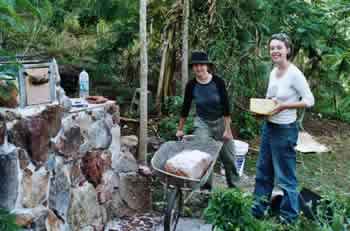
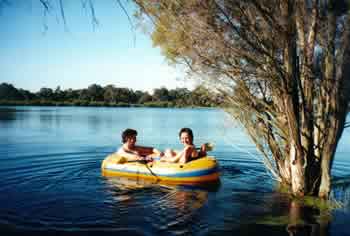

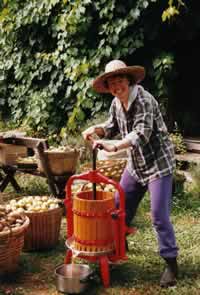
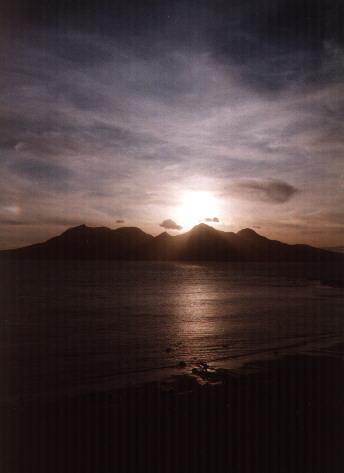
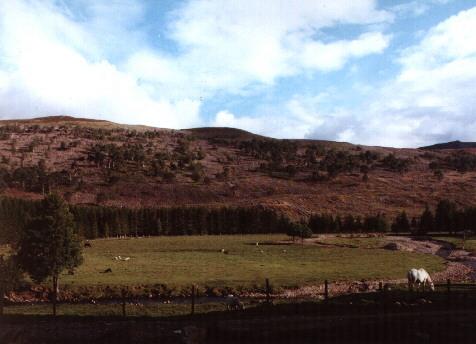
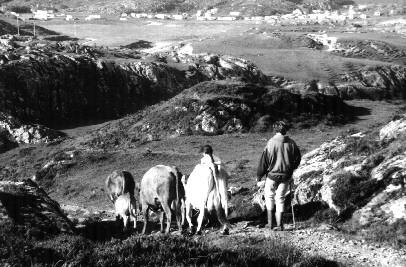 |
